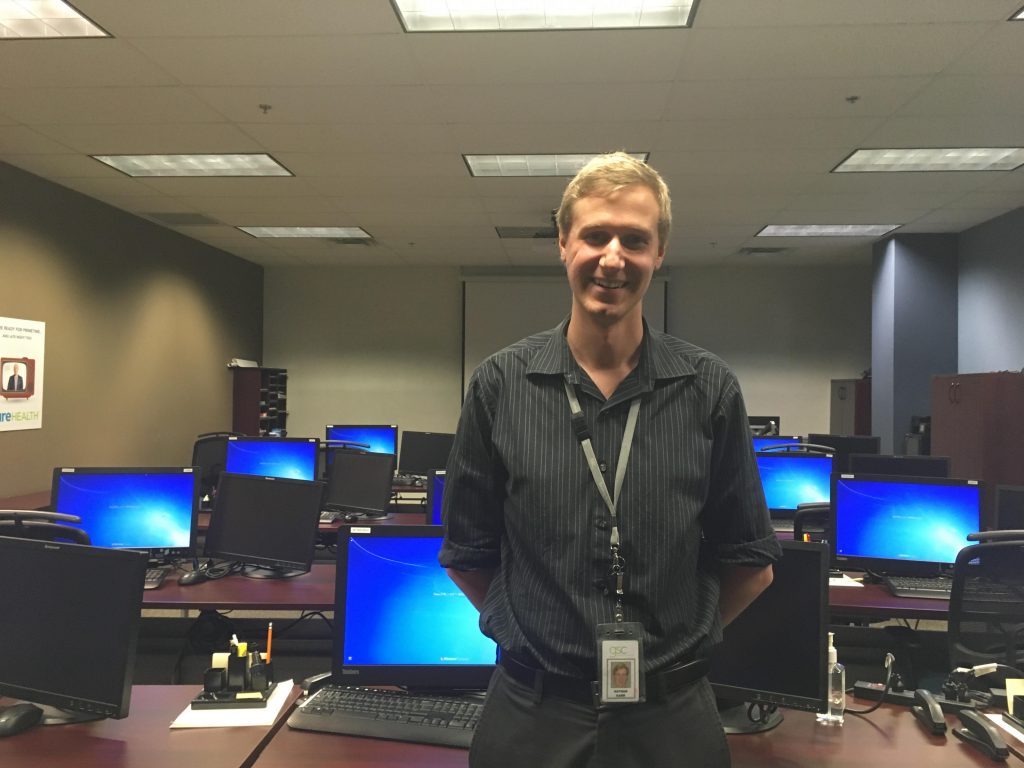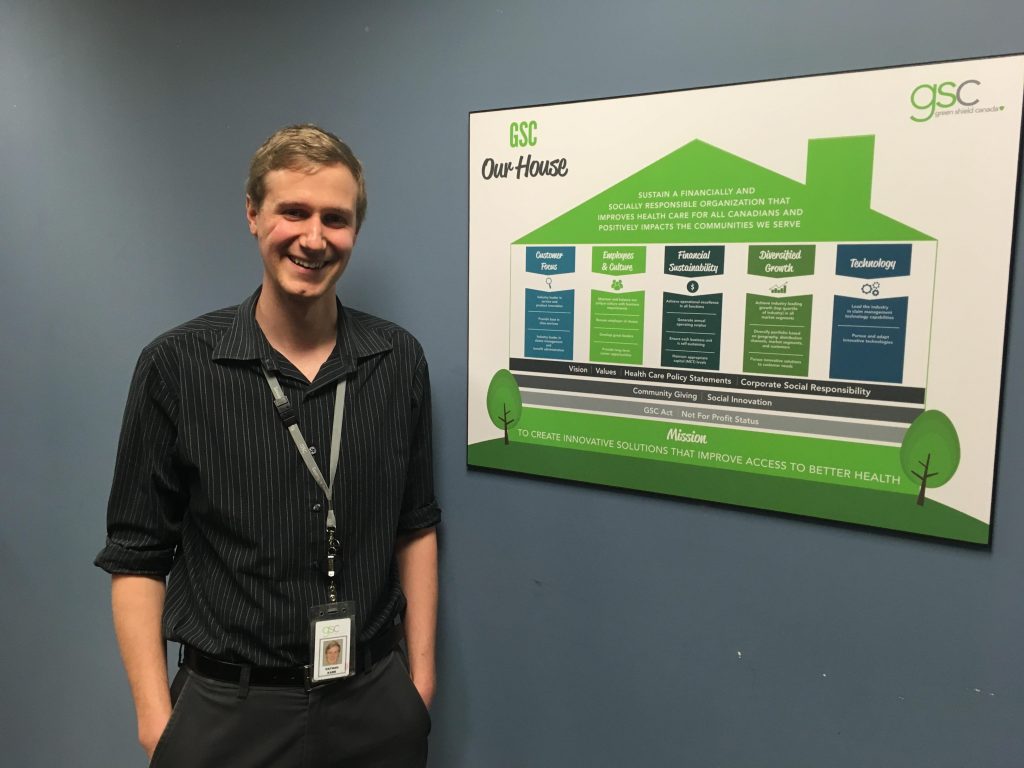Behind Green Shield Canada is one of the largest tech and IT teams in Windsor-Essex. The health and dental coverage provider is supported by a variety of professionals, solving problems big and small.
Nathan Karr has been a Technical Analyst at Green Shield Canada for just over a year. He looks after user hardware needs, updating software, troubleshooting issues, and deploying work stations. Starting with a love of video games growing up, he studied at St. Clair College before moving into the professional world.
Information Systems Analysts and Consultants falls in the list of Most In-Demand Jobs in Windsor Essex. This role mixes problem solving, communications, and technical know-how. Explore more jobs and career paths with our new WEexplore tool.
We met Nathan in the Green Shield Canada office to ask him more about his work:
What does an average day look like?
I resolve end-user issues for all my fellow GSC employees. Using email and a comprehensive web-based Help Desk tool, our employees can submit issues and service requests to my team. I spend time problem solving these issues with the goal of determining the root cause. I provide our employees services such as loaning hardware, preparing user accounts, modifying access, and preparing workstations for new employees.
What got you into this career?
I grew up with an interest in technology and “tinkering” on the computer. I originally desired to play computer games over dial-up internet with friends in my area. This required some knowledge of computer networking back in those days. I’ve continued to develop that understanding and skill, attending St. Clair College’s Computer Systems Technology course. After this I was able to find work as a systems support technician in Windsor.
The program had a large focus in computer networking. It was a three-year program with a two-year option. It gave you a really broad understanding of IT. It wasn’t very drilled down to anything besides networking, but it gave you a broad understanding of troubleshooting and how computer hardware works.
College prepared me for 10% and being on the job prepared me for 90%. IT is so diverse from one company to another. There are so many tools and programs out there, so everyone has a different idea of what will work best.

What is the best part of your job?
I find satisfaction in helping others and finding or creating a solution for a difficult problem. I accomplish these two objectives regularly in my job, providing technical solutions for others which in turn makes our employees quite happy! Also the free coffee here provides a nice caffeinated kick!
Did you know anyone in the field before getting into the job?
I didn’t know anyone who was current in the field when I first got into the IT segment. I wasn’t fully aware of what to expect stepping into IT but I’ve since met many highly skilled and intelligent people who work together as one team.
I knew of a retiree from the tech who said it was a great field that wasn’t going anywhere. At the time, he mentioned I should look into Cisco. I do have a Cisco certification now, which probably really helped in getting this job. Looking at the big IT players and getting certifications from them is really beneficial if you want a job in IT. It shows that you have certified understanding. You can be a guru, but if you have nothing to back it up, it might be hard to prove to an employer.
Did you have to go through any formal training / program?
Training for my role has typically been informal. The complexity of the systems in place are best learned through observation, controlled trial and error, and documenting findings.
I use technology to learn more about technology. I do informal training through YouTube, learning about new and emerging technologies. Videos are a great way to learn.
What kinds of hands-on learning did you do in training? While starting?
While starting I would shadow members of my team, observing how they approached an issue, following them around the big office spaces to help understand the floor plans, and assist in equipment moves, setups, and takedowns. Eventually I started taking on more tasks as an individual, looking back on and growing upon what I learned while shadowing.
Was it easy or hard to find a job?
I personally didn’t have a hard time finding work in IT. This growing sector is in need of talented individuals who have a passion for how we make life easier using technology, and then supporting and educating others on that technology.
What advice would you give to someone starting out?
They need to ensure that they’re a good team player. It’s very important to be able to communicate well. I think that’s even more important than having the skills going in to IT. You can develop the skills over time, but if you communicate you will work faster and get to the root of the problems better.
You need to have the linguistic skills and the vocabulary to hold an audience. That’s general soft skills needed to present yourself to a potential employer. You need to show you can communicate in the interview. Once you have the job, you need to learn the lingo to communicate with your team. The best way to learn that, is like learning any other language: immerse yourself. Go to France to learn French. Get into the IT world to learn the IT terminology. Working with users, you then have to take the high level tech lingo and turn it into an everyday language.


